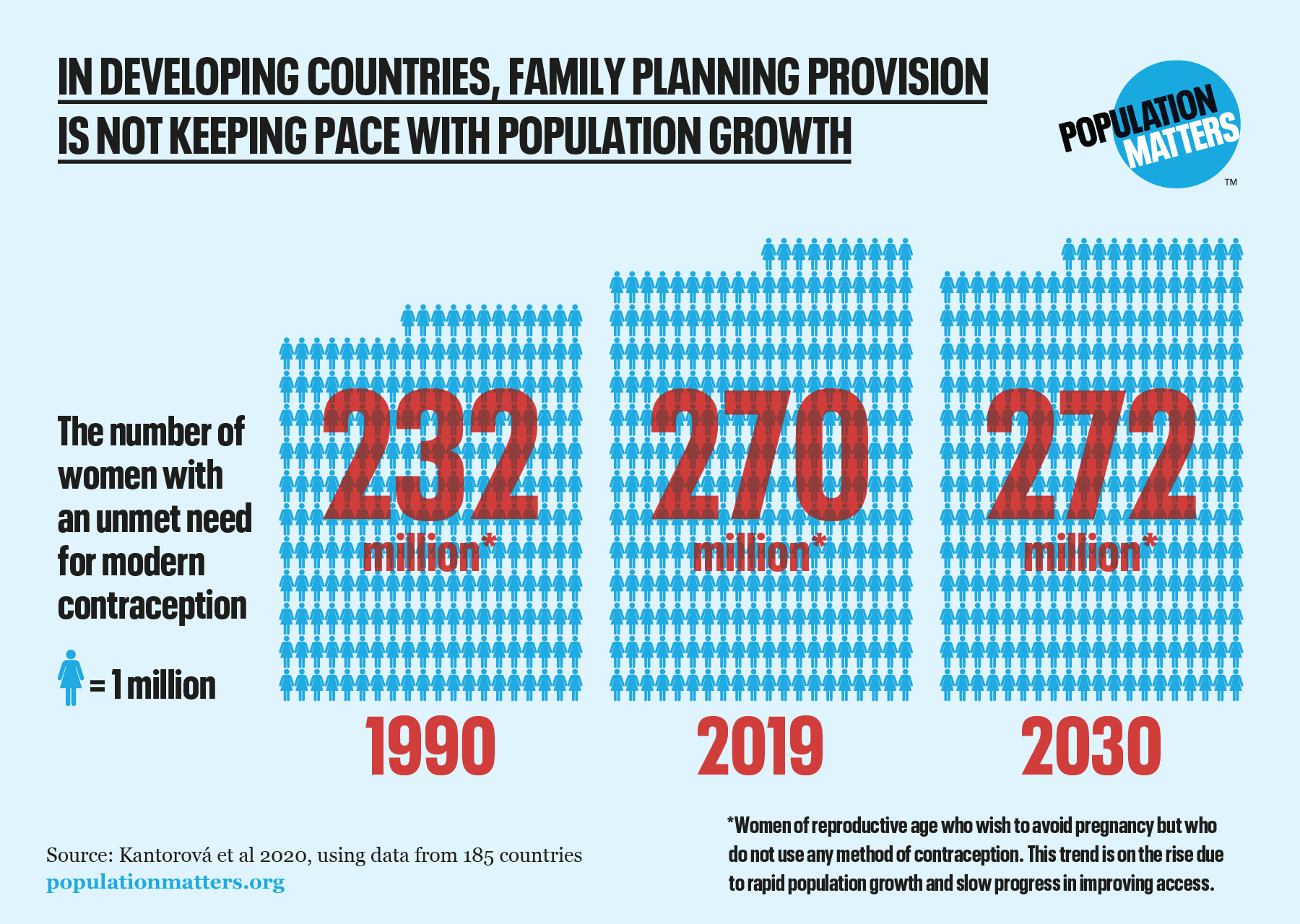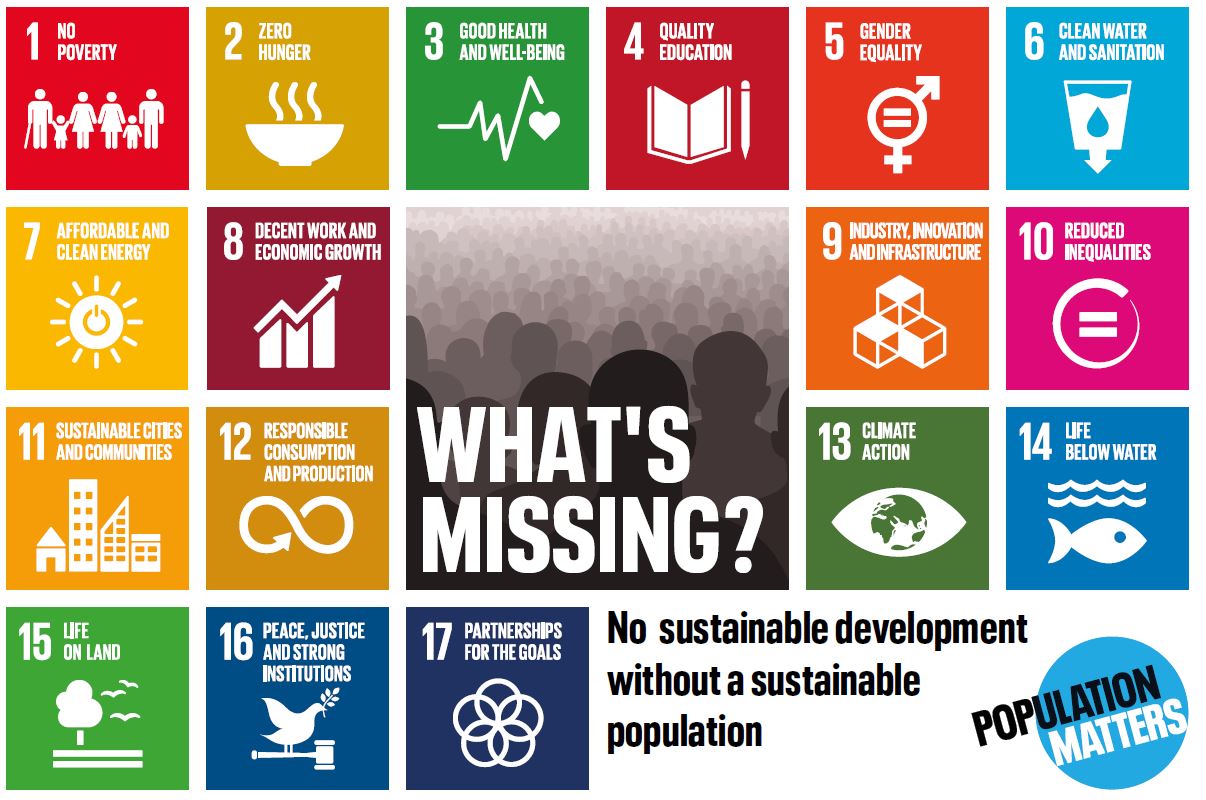
Population and reproductive rights – our new briefing
In a submission to the UK parliament, Population Matters calls for greater honesty about the population benefits of reproductive rights – and warns of the threat posed by nationalistic population policies.
Population Matters has submitted an 8-page briefing to a UK parliamentary inquiry seeking evidence about barriers to reproductive rights and the link between those rights and sustainable development.
The All-Parliamentary Group on Population, Development and Reproductive Health (APPG-PDRH) consists of members of the UK parliament across all political parties who are committed to defending reproductive rights. Its aim is to “ensure the full implementation of the International Conference on Population and Development (ICPD) Programme of Action, with specific reference to stabilising the world’s population through ensuring choice and sustainable development.”
The group keeps a watching brief on UK government policy, and on developments in population and reproductive rights, producing reports and supporting the work of organisations working in this area.
This week, the APPG-PDRH elected two new co-chairs, Baroness Sugg and Baroness Hussein-Ece, who will work alongside Pauline Latham MP. Baroness Sugg is the former Minister for International Development who resigned her ministerial position last year after the UK government ended its longstanding commitment to providing 0.7% of Gross National Income as overseas aid (see our statement condemning the policy change here)

Defending rights
The International Conference on Population and Development Programme of Action that the APPG supports was developed at a global meeting in Cairo in 1994. That meeting enshrined the principle of individual rights and the empowerment of women at the heart of addressing population. While its commitment to human rights was essential in the light of severe abuses in the name of “population control”, for many it was thought to signal a shift in global policy away from concern about population overall to an exclusive focus on individual rights.
As we note in our submission, however, the Cairo meeting also recognised the interrelationship between population, development and sustainability. Principle Six of the Programme of Action states:
“Sustainable development as a means to ensure human well-being, equitably shared by all people today and in the future, requires that the interrelationships between population, resources, the environment and development should be fully recognized, properly managed and brought into harmonious, dynamic balance.”
Our submission calls for this element of the “Cairo principles” to be reasserted and restored, while never losing sight of the vital importance of individual rights.
In reality, while there has been much progress on women’s empowerment and Sexual and Reproductive Rights and Health since 1994, the ambitions of Cairo have yet to be fulfilled. While the proportion of women using modern contraception has increased, the absolute number of women with an unmet need for contraception has actually grown, partly as a result of population growth in Least Developed Countries outstripping provision.

Reproductive rights and sustainability
Our briefing provides a short summary of the findings of our Hitting the Targets report, which examined how positive, ethical solutions to population growth can accelerate progress towards the UN’s Sustainable Development Goals. Those include the devastating impact of populaton growth and unsustainable consumption on our environment, and the evidence of how it exacerbates poverty, hunger and equity.

The threat to reproductive freedom
The final section of our submission briefly examines the threat to reproductive freedom posed by governments adopting pro-population growth policies. The submission identifies the increasing prevalence of the combination of restrictions on reproductive freedom (especially abortion) and nationalistic and authoritarian regimes, such as Iran, China, Russia, Turkey, Hungary, Belarus and Poland. It reports:
“In the most disturbing example, Iran has blocked public hospitals and clinics from providing contraception and performing vasectomies in an attempt to boost birth rates. Meanwhile, many populist, nationalist and/or far-right governments are pursuing domestic pro-natalist policies, encouraging or pressuring women to have larger families, in order to boost the ‘native’ population (sometimes against a perceived ‘threat’ from immigrants) and/or to conform to conservative or religiously determined norms of women as defined (and controlled) by their reproductive capabilities.”
Recommendations
Our submission concludes with the following recommendations:
- Set sustainability targets and report progress based on absolute number of people benefiting, not on percentages of the population.
- Reaffirm the Cairo principle that rights-based population policies are a legitimate and essential part of achieving the essential goals enshrined in the SDGs.
- Promote the value of SRHR and women’s empowerment in achieving environmental goals and seek opportunities to embed them in environmental policies and agreements.
- Monitor and respond to the threats to reproductive rights and gender equality posed by the nationalistic population growth agenda.
